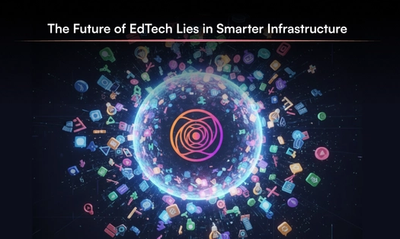What is an AI Agent? A simple explanation for MSMEs and business owners from India
 Vivek Raghuwanshi
Vivek Raghuwanshi
What is an AI Agent? A simple explanation for MSMEs and business owners from India
Namaste readers!
During my numerous customer interactions at Scogo.ai, curious business owners/MSMEs, founders, and entrepreneurs from IT, E-commerce, FinTech, D2C always ask me:
Vivek Bhai, AI Agent kya hai? (What is an AI Agent?)
Vivek Bhai, kya AI Agent customer query ko answer kar sakta hai? (Can an AI Agent answer a customer query?)
Vivek Bhai, AI Agent sales mein kaise help karta hai? (How does an AI Agent help in sales?)
Vivek Bhai, AI Agent kya ek bot hai? (Is AI Agent a bot?)
And more such interesting questions.
Today, I'm telling you the simplest explanation I've started sharing with my community of Indian MSMEs and large businesses.
AI Agent kya hai?
Let me first share a simple example-based explanation:
- Assume karte hain aapki CCTV products ki store hai (Let’s assume you run a store selling CCTV products)
- Aapke shop mein aap aur aapka ek experienced salesperson hain customers ko attend karne ke liye (in this store it is you and your salesperson who are attending the customers)
- Ek customer aate hain aur ‘WiFi CCTV camera for his/her office’ ke liye enquiry karte hain (A customer walks into the store enquiring for ‘WiFi CCTV camera for his/her office’)
- Your experienced salesperson:
1.) understands customer preferences,
2.) answers all the customer queries,
3.) shows all the relevant products from your catalogue,
4.) and completes the sales and billing process.
5.) If needed also manages post-sales support (later)
6.) All this, without any help or intervention from your side.
Now imagine a system performing all the above tasks for your online customers, without multiple inputs or help from your side
Aise system ko hum AI Agent keh sakte hain (Such a system is an AI Agent)
Now let’s understand this better in a phase-wise approach:
Think about how traditional commerce works.
Businesses sell products and services through physical stores.
You need salespeople, admin staff, maybe an accountant, and physical infrastructure like electricity, phones, desktops/laptops, a POS system, and more.
Then came the internet, and tech innovators thought, "Why can't we replicate this offline store online (on the web)?"
This led to the rise of e-commerce in India, starting around 2010 when smartphones and affordable mobile data became widely accessible.
Phase#1: E-commerce in India:
Ecommerce took your physical offline store operations and put them online.
Ecommerce platforms (#Shopify, #Magento) and marketplaces (#Flipkart, #Amazon, #Myntra), and even WhatsApp (to some extent) helped businesses manage:
Product and service catalogues
Order placement
Payment processing
Inventory management
Order tracking
Customer service interactions
Returns management
Promotions
Analytics
Phase#2: Automation of online store operations by SaaS products:
To manage these online operations effectively, many innovative SaaS (Software as a Service) products were launched. These helped businesses of all sizes automate different parts of their online work. Some examples of popular SaaS products in India are:
- For CRM: Zoho CRM, Salesforce
- For Accounting: Tally , Khatabook ,
- For Customer Support: Freshdesk , Zendesk
- and more
The gap: human intervention is still necessary at multiple stages to manage online operations
Even with SaaS automation, businesses still need human intervention for many repetitive tasks.
For example, your team still has to:
Upload data to the CRM, update it, segment it, and plan customer follow-ups.
During customer support calls:
i.) check product warranties,
ii.) return policies,
iii.) and provide resolutions.
Phase#3: AI Agents are automation systems that need no-to-minimum human intervention
Now, the latest AI innovations have made it possible to create software systems – AI Agents – that
1.) can talk to your SaaS products and other systems or even Google Sheets (online Excel sheets)
2.) and complete actions (like uploading customer data to your CRM) without any human intervention.
These agents can handle many high-volume repetitive tasks, freeing up your human teams to focus on more important things like closing complex and big deals (and even upselling/cross-selling) and resolving complex customer issues.
Simple Explanation:
In simple words, an AI Agent:
understands your team's or customer's query,
talks to the other tools in your system,
and completes the assigned task.
For example:
- if a customer asks about their order status,
- the AI Agent can check the order tracking system
- and give the customer a real-time update.
Or,
- if your team needs to schedule technician visits for product installations at addresses of multiple customers,
- the AI Agent can pull the data from the CRM
- call individual customers and schedule the visit
- and send confirmation to customers through email and SMS.
I hope this will help the business/MSME community from India to understand AI Agents better. Please share this article with someone who should get introduced to AI Agents.
If you have additional questions and want to understand how AI Agents can convert your business use case into a revenue stream and save costs, please feel free to connect with me at vivek@scogo.in
Always happy to help 😊


 Mohit Shrestha
Mohit Shrestha
